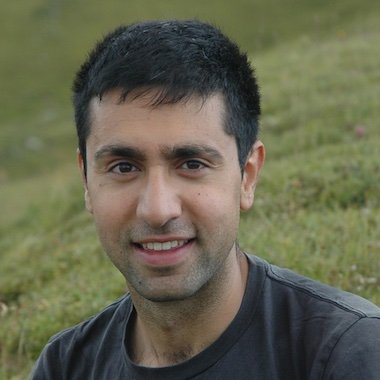
Peter McMahon
@peterlmcmahon
Followers
3K
Following
1K
Media
68
Statuses
404
Researcher working on the physics of computation, including quantum, optical, and neuromorphic computing (not necessarily all at the same time!).
Joined March 2019
*How can you use quantum neural networks (QNNs) to gain a quantum advantage on classical data?* We propose to use QNNs (and other quantum algorithms, including quantum signal processing) to process data in quantum sensors. 1/
3
7
57
Paper: https://t.co/yHBXmNqIr5 Cornell press release: https://t.co/gYmAyPvS2T Thread explaining the work from when the preprint came out: https://t.co/nw2h9QbzxJ 2/2
*Programmable on-chip nonlinear photonics* We have developed a device containing a slab waveguide with arbitrarily programmable nonlinearity: its χ^(2) distribution as a function of 2D space can be reconfigured into any desired pattern, allowing a wide range of processes. 1/
0
0
5
Our work on *programmable on-chip nonlinear photonics* came out online in Nature today. You can find the link to the paper in the thread below. Congratulations again to first author @yanagimotor and the rest of the team. 1/2
3
5
39
*2nd Conference on Computing with Physical Systems*: Following the first meeting in Aspen in 2024, the CPS conference will return in 2026, hosted in Les Houches (France). Applications are due by 30 October 2025! 1/2
1
3
18
Putting my thoughts together. Why networks beat "hero" sensors and what birds can teach us.
2
3
9
Now out in Nature, a review that discusses current approaches and challenges: https://t.co/Cbk8a5gQLp 2/2
0
0
6
*How can you train a physical system to act as a neural network?* 1/2
1
0
24
Our preprint appeared on the arXiv tonight: https://t.co/wweVgGsNm3 . We welcome comments from the community, especially about examples of quantum computational sensing we might have missed! Congratulations to Saeed and @SridharPrabhu98, as well as @LoganGWright1! 10/
arxiv.org
Quantum computing has the potential to deliver large advantages on computational tasks, but advantages for practical tasks are not yet achievable with current hardware. Quantum sensing is an...
0
0
22
We have put together a perspective/mini-review paper that attempts to summarize this new research area and explain some of the prior results using a common language and mathematical framework. 9/
1
0
3
Our group started exploring quantum computational sensing ~5 years ago and we came to realize that others had also come across the same general idea from different subcommunities of quantum information, inventing different protocols for different tasks. 8/
1
0
5
This idea of using quantum systems to compute a function of sensed signals has been explored by various works over the past ~6 years, with a burst of interesting and creative papers from various groups coming out over the past year. 7/
1
0
2
...but instead features of the signals that are most relevant to classifying the underwater object (or, in the best case, the entire classification can be performed quantumly, so a measurement directly gives the classification result). 6/
1
0
2
An approach using a quantum computational sensor would be to use the quantum system to both sense the magnetic fields and also to compute a function of the signal prior to measurement, so the quantum computational sensor doesn't output a reconstruction of the signals... 5/
1
0
3
...and then feed the reconstructed signals into a classical neural network to produce a classification prediction. But why go to the effort of first reconstructing the magnetic-field signals when all you wanted to know was whether there was a submarine or a fish etc.? 4/
1
0
3
For example, suppose you want to use magnetic-field sensing to identify an underwater object: is it a submarine, or a fish, or a shipwreck? A conventional approach to this task would be to reconstruct the magnetic field at various points in space in time... 3/
1
0
4
This is an advantage that can arise when the goal in quantum sensing is not to reconstruct the raw underlying signal but rather to estimate some function of it. 2/
1
0
4
*Quantum Computational Sensing* -- a perspective/mini-review. A new kind of quantum advantage has recently been discovered, arising from a merger of quantum sensing with quantum computing: _quantum computational-sensing advantage_. 1/
1
24
99
Congratulations to Saeed and @SridharPrabhu98, as well as @LoganGWright1! 12/
0
0
1
I am optimistic about the prospects for experimental proof-of-concept demonstrations given the modest quantum resources required (down to just a single qubit and a not-particularly-deep circuit!). 11/
1
0
2


